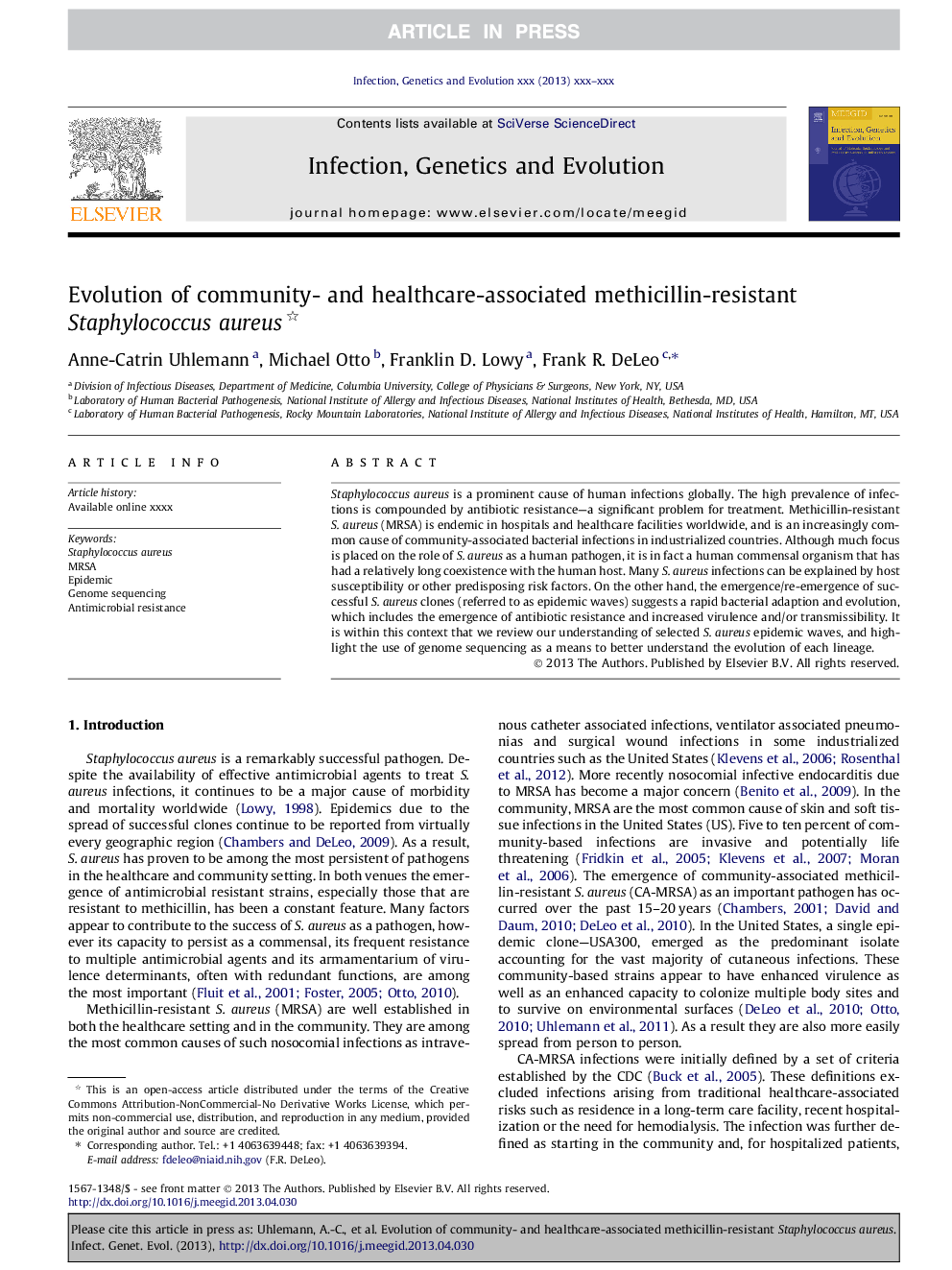| Article ID | Journal | Published Year | Pages | File Type |
|---|---|---|---|---|
| 5910341 | Infection, Genetics and Evolution | 2014 | 12 Pages |
Abstract
Staphylococcus aureus is a prominent cause of human infections globally. The high prevalence of infections is compounded by antibiotic resistance-a significant problem for treatment. Methicillin-resistant S. aureus (MRSA) is endemic in hospitals and healthcare facilities worldwide, and is an increasingly common cause of community-associated bacterial infections in industrialized countries. Although much focus is placed on the role of S. aureus as a human pathogen, it is in fact a human commensal organism that has had a relatively long coexistence with the human host. Many S. aureus infections can be explained by host susceptibility or other predisposing risk factors. On the other hand, the emergence/re-emergence of successful S. aureus clones (referred to as epidemic waves) suggests a rapid bacterial adaption and evolution, which includes the emergence of antibiotic resistance and increased virulence and/or transmissibility. It is within this context that we review our understanding of selected S. aureus epidemic waves, and highlight the use of genome sequencing as a means to better understand the evolution of each lineage.
Related Topics
Life Sciences
Agricultural and Biological Sciences
Ecology, Evolution, Behavior and Systematics
Authors
Anne-Catrin Uhlemann, Michael Otto, Franklin D. Lowy, Frank R. DeLeo,
